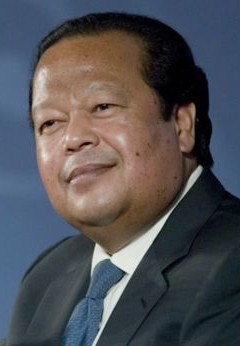Central Hall, Westminster, London, UK, November 2, 1971
1970s
Prem Rawat: Zitate auf Englisch
Ram Lila Grounds, Delhi, India, October 29, 1966 (translated from Hindi) - Published in Divine Light (UK) April 1, 1973, Volume 2, Issue 7
1960s
Address to faculty, students and guests at Harvard University's Sanders Theater (August 2004)
2000s
Montreal, Quebec, Canada, March 6, 1988
1980s
London, United Kingdom, Jun 13, 1998
1990s
“Question: Guru Maharaji Ji, are you God? – Answer: No. My Knowledge is God”
Who is Guru Maharaj Ji?, (November 1973), Bantam Books, Inc.
1970s
Dr. Díaz, Vice-Rector. Salamanca University. Salamanca, Spain. June 2003
About, 2000s
(responding to a question about the word satguru), Alta Loma Terrace Satsang, 1971 - reproduced from Elan Vital magazine, vol. II, issue 1
1970s
Toronto, Ontario, Canada May 27, 1994
1990s
Brisbane, Australia (March 17, 1982) as reported in Maharaj, Visions International (1998)
1980s
Seattle, Washington (1994) as reported in Maharaji, Visions International (1998)
1990s
Madrid, Spain September 1990
1990s
Seattle Washington, February 1994
1990s
Prem Nagar, Hardwar August 21,1962 (translated from Hindi). Birthday Celebrations, as published in "Hansadesh" magazine, Issue 1, Mahesh Kare, January 1963. (First published address.)
1960s
Malaga, Spain, 24 March 1978
1970s
September 1973, Los Angeles, USA, published in Light Reading Vol.1 No.1 Spring 1978 “Question on devotion and other answers”
Students of Prem Rawat clarify that at that time Rawat was making a distinction between the mind, which he described as including the dark or negative thoughts that a person may have; and heart, the place within each person where peace can be found.
1970s
Prem Nagar Ashram, India, 10 December 1971 - quoted on p256 of "Who is Guru Maharaj Ji?" published by Bantam, 1973
1970s
The essence of everything., Dortmund Germany October 1, 1978, published by the DLM in The Golden Age No 51, February 1979
1970s
Glastonbury, England Midsummer Festival, June 21, 1971
1970s
Addressing facutly and guests at the Indian Institute of Technology (IIT), as part of a program by the National Resource Center for Value Education. New Delhi. (November 7, 2004)
2000s
Johannesburg, South Africa, 2 May, 1972
1970s
Central Hall, Westminster, London, UK, November 2, 1971
1970s
Frankfurt, Germany, March 11, 1972
1970s
Address by Prem Rawat to members of the Italian Parliament (July 2004)
2000s
Toronto, Ontario, Canada, October 2, 1971
1970s
Boulder, Colorado August 28, 1971 I Am a Road
1970s
(responding to a question about the word guru), Alta Loma Terrace Satsang, 1971 - reproduced from Elan Vital magazine, vol. II, issue 1
1970s
July 29, 1966, Prem Nagar, India (translated from Hindi)
1960s
Montrose, Colorado, July 27, 1972
1970s
